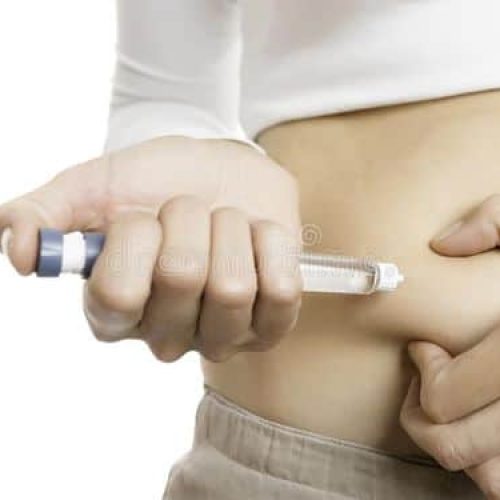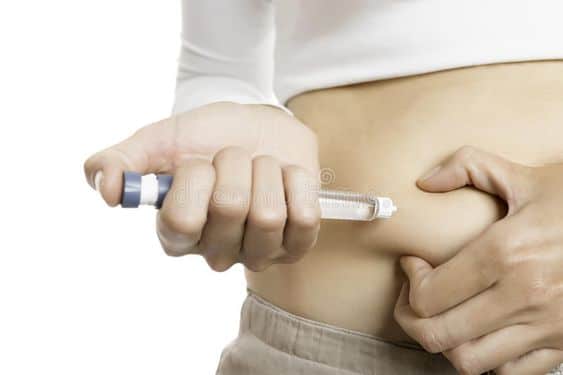Dehydration and anxiety. For chronic signs, please read this blog: Dehydration Anxiety, Signs of Dehydration, Chronic Dehydration Symptoms, and Dehydration Treatment.
Is there water anxiety? Dehydration and anxiety
Most people do know about using water to calm anxiety. So, this blog will help you know the signs of water clam anxiety.
Whether you’re at home, at work, or out on a date, most of us constantly search for ways to calm our anxiety.
You may have heard that drinking water can help ease your anxiety, but does it work?
Well, the answer is that it depends. Everyone’s body responds differently to different things, so you’ll have to try it out and see how it goes.
Though drinking plenty of water is always good for your overall health and well-being, there’s no harm in giving it a shot! It may be water that calms anxiety.
Do you sometimes feel relief from worry by consuming a glass of water? You know that, so do you know water calms anxiety? You’re not alone.
So if you’re looking for a way to calm down and care for yourself, sipping on some H2O may be the answer.
Please read this blog. know-about-can-stress-dehydrate-you
Signs of dehydration and anxiety
A prevalent indication of dehydration is experiencing thirst. Additional symptoms include xerostomia, cephalalgia, vertigo, and urine with a dark hue. Severe dehydration may result in hypotension, tachycardia, and cognitive disorientation.
Pay attention to your body’s signals and maintain hydration by drinking water regularly throughout the day to avoid dehydration. If you notice any of these symptoms, make sure to rehydrate immediately.
Your health and well-being depend on it.
Signs of dehydration include a dry mouth, lack of urination, dark yellow urine, dizziness, fatigue, and confusion.
To avoid and cure dehydration, it is crucial to consume an adequate amount of fluids and closely observe these indicators.
If there are indications that you or someone else could be experiencing dehydration, it is advisable to seek medical assistance promptly. Ensure that you maintain proper hydration and attentively heed your body’s signals.
It is essential for athletes, older adults, and those with chronic illnesses to hydrate and watch for signs of dehydration regularly.
To avoid and cure dehydration, it is crucial to consume an adequate amount of fluids and closely observe these indicators.
If there are indications that you or someone else could be experiencing dehydration, it is advisable to seek medical assistance promptly. Ensure that you maintain proper hydration and attentively heed your body’s signals. So, make sure to keep yourself adequately hydrated throughout the day. Your body will thank you!
Please read This blog: Does Coffee Dehydrate- Coffee Dehydrate You?
Chronic dehydration symptoms:
dehydration and anxiety
Chronic dehydration can present in a variety of ways, including fatigue, headaches, constipation, and joint pain. Additionally, it might result in chronic health problems, including nephrolithiasis and urinary tract infections.
Maintaining optimum hydration is crucial, which may be achieved by consuming adequate water throughout the day.
If you encounter these symptoms, augment your water consumption and see a healthcare practitioner for further assessment.
Remember, prevention is key! Stay hydrated to avoid these potentially detrimental symptoms.
Chronic dehydration can present as fatigue, headaches, constipation, muscle cramps, and dizziness.
Persistent dehydration may also result in more severe health concerns, such as the formation of kidney stones and the occurrence of urinary tract infections.
The symptoms of chronic dehydration include:
Chronic dehydration symptoms: Drink plenty of water and add electrolytes through foods like fruits and vegetables or sports drinks. Keep a water bottle on hand at all times, and aim for at least 8 glasses of water per day.
Chronic dehydration symptoms: If you are experiencing chronic dehydration symptoms, consult your healthcare provider for personalized recommendations.
It is essential to keep in mind that maintaining proper hydration has positive effects on your general physical condition and state of being. Avoid waiting until you experience thirst to consume water; maintain optimal hydration levels consistently throughout the day. Happy hydrating!
Please Read This Blog 10-ways-to-cope-with-chronic-stress
Dehydration treatment:
dehydration and anxiety
The therapy for dehydration might differ according to the level of severity. One way to effectively address mild dehydration is by augmenting fluid consumption and consuming water-rich meals, such as fruits and vegetables.
In cases of moderate-to-severe dehydration, intravenous fluid replacement or oral rehydration treatments may be necessary.
It is crucial to seek medical assistance promptly if symptoms continue or worsen.
Prevention of dehydration includes drinking enough fluids, especially in hot climates or during physical activity.
Proper hydration promotes overall health and well-being.
Dehydration treatment includes replenishing lost fluids and electrolytes through intravenous fluid therapy or oral rehydration solutions.
In more severe instances, drugs may be administered to address the root causes of dehydration, such as diarrhea or vomiting.
It is essential to seek medical attention immediately if signs of severe dehydration occur, as it can lead to complications, including kidney failure and shock.
Additionally, preventing dehydration by regularly consuming water and sports drinks, especially during physical activity or in hot weather, can help avoid the need for treatment.
Monitoring urine color is a good indicator of hydration levels, and aiming for a light yellow color is typically recommended. In general, enough hydration is essential for preserving overall health and well-being.
Does water alleviate anxiety? The condition of not having enough water in the body and feeling worried or nervous.
Addressing mental health issues such as depression, anxiety, and PTSD will require the use of many strategies.
. The subject matter is drugs, removing pressures from your life, working systematically, getting enough sleep, proper food, meditation, yoga, etc.
And so on. There is one straightforward remedy that’s been right before you and that you might not have picked au fait yet:
Serve your depression or anxiety by staying adequately hydrated throughout the day.
Every system within the frame counts on the water to perform, and the brain isn’t any exception. 75% of brain tissue is water. Water helps form it to calm anxiety.
In summary, dehydration impairs brain function.
Therefore, it’s necessary to consider water as a nutrient your brain wants.
Dehydration and depression: Dehydration and anxiety
Depression is a complex psychopathy involving the brain and body.
While it would be easy to state that dehydration causes all forms of depression, the two are linked in various ways.
For example, one symptom of chronic dehydration seems to be depression. That is the reason for calm anxiety.
Please Read This blog: calming-activities-of-stress-anxiety
dehydrated; your brain is dehydrated. Water calms anxiety, dehydration, and anxiety. Read this blog: Dehydration Anxiety, Signs of Dehydration, Chronic Dehydration Symptoms, and Dehydration Treatment.
Dehydration impairs brain energy generation. Several of your brain’s functions need this energy to become inefficient and might even close up.
The ensuing mood disorders resulting from this kind of pathology are classified as depression.
Dehydration impedes your brain’s monoamine neurotransmitter production. Monoamine neurotransmitters are made from the essential amino acid aminoalkanoic acid. However, decent water is required.
Dehydration can even negatively impact alternative amino acids, leading to feelings of sadness, inadequacy, anxiety, and irritability.
Dehydration and anxiety: Water helps a lot; you can call water to calm anxiety.
Please Read This blog. calming-activities-of-stress-anxiety
Dehydration will increase stress in your body. Dehydration and anxiety: Stress is one of the foremost distinguished conducive factors to depression, besides impotence and the inability to address stressors.
Dehydration is the best reason for stress in your body. Dehydration and stress are mutually causative. Water can alleviate anxiety as well.
So, drinking enough water can help reduce stress’s harmful psychological and physiological effects.
Dehydration and anxiety Dehydration and anxiety. Read this blog: Dehydration Anxiety, Signs of Dehydration, Chronic Dehydration Symptoms, and Dehydration Treatment.
Similar to sadness, dehydration seldom acts as the sole cause of anxiety.
However, not drinking adequate water puts you in danger of inflated anxiety symptoms and, presumably, higher anxiety levels in the future.
In short, dehydration and anxiety: dehydration creates stress, and stress produces melancholy and anxiety.
Therefore, you wish to confirm you’re correctly hydrated daily, particularly if you’re naturally anxiety-prone.
Dehydration and anxiety: Getting enough water is critical to reducing anxiety. Even though you’re not experiencing anxiety, drinking adequate water will produce feelings of relaxation.
Please Read This Blog 9-things-not-to-say-to-anxious-people
Panic and dehydration
It causes increased anxiety, which causes panic episodes.
Here are some tips. It exposes you to many signs of panic attacks, including water calamities. Dehydration and anxiety
1. Increased rate 2. Headaches 3. Muscle fatigue and weakness 4. Feeling faint or lightheaded? Please Read This Blog, The Top 5 Great Nutrients for-your-brain
How can you tell if you’re dehydrated or if water calms anxiety? Dehydration and anxiety. Please read this blog: Dehydration Anxiety, Signs of Dehydration, Chronic Dehydration Symptoms, and Dehydration Treatment.
Some dehydration signals are apparent. However, not all. Signs of dehydration you’ll or might not be awake include dehydration and anxiety
1. Increased hunger. Hunger and thirst signals come from an equivalent part of the brain. Even after you’ve ingested enough, hunger suggests you wish to drink some water, only eat a little. 2. Dryness. It may be that water calms anxiety.
3. Headache. Insufficient water intake results in a diminished supply of chemical components to the brain, which in turn causes headaches. 4. Fatigue and muscular edema. Dehydration leads to muscular weakness, spasms, cramps, and several other symptoms. 5. Bad breath. Dangerous breath sometimes suggests that you wish for some water to refresh yourself. Dehydration induces xerostomia, which implies you’re not manufacturing enough secretion to assist your mouth in rebuffing odorous bacteria. 6. rapid heartbeat, weak breathing, fever, foggy thinking. These are often signals of severe dehydration, and you’ll obtain medical attention.
What is the recommended daily water intake?
The appropriate daily water consumption varies based on gender, stress levels, body weight, climate, physical activity, and health conditions. Girls should consume 11.5 cups (92 oz.) of water, while boys should consume 15.5 cups (124 oz.).
If you have an aversion to plain water, consider enhancing its flavor with lemon or juice.
Dehydrate. Avoid beverages with the maximum potential that contain metallic elements, as metallic elements dehydrate you: sodas, diet sodas, energy drinks, etc.
If any of the following conditions apply to your circumstances, it is advisable to adjust your fluid intake accordingly: Dehydration and anxiety
1. Engaging in long, intense physical exercise sessions 2. Illnesses with fever, diarrhea, or vomiting 3. Hot or wet climate 4. Pregnant or breastfeeding mothers 5. Chronic health conditions 6. Dieting: You can verify how well you’ve supported the color of your excretory product. Your excretory product is transparent or pale yellow if you’re adequately hydrous.
Please Read This blog: 25-quick-ways-to-reduce-stress
Final Thought
While the jury is still out on whether or not drinking water helps explicitly ease anxiety, we know that staying hydrated is always a good idea.
Drinking plenty of water has countless benefits for your health and well-being, so if you’re looking for an easy way to calm your anxiety, try drinking water!
Do you drink enough water every day? If not, now might be a good time to start.









